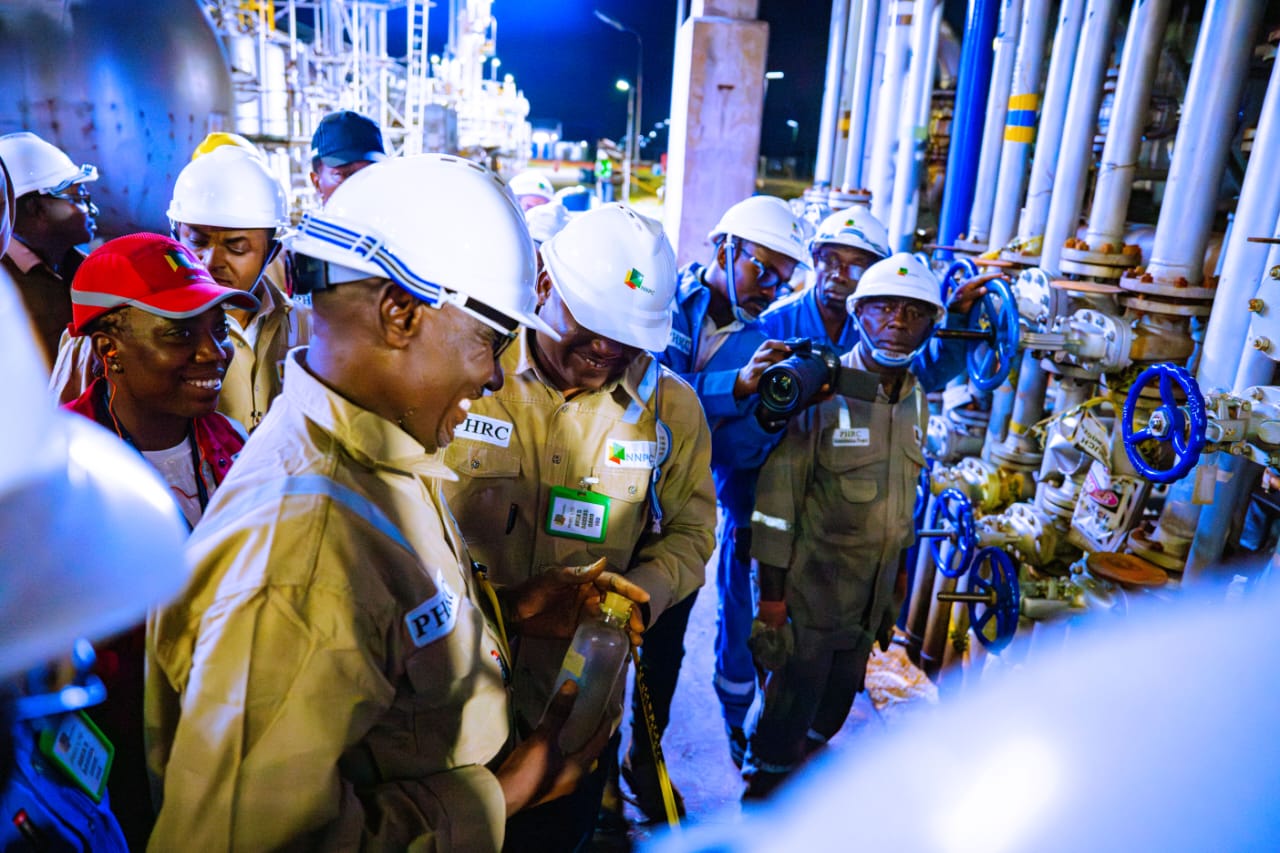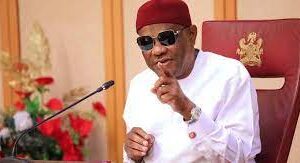Governor Sheriff Oborevwori’s 2025 budget proposal for Delta State, presented to the State House of Assembly, reflects a bold and strategic approach to governance, with a focus on sustainable development and infrastructural growth. The budget is pegged at N936 billion, with a notable 62.75 percent allocated for capital expenditure and 37.25 percent directed towards recurrent expenditure. The 62.75 percent of the budget allocation to capital expenditure is unprecedented and a remarkable improvement in resource allocation, a far deviation from what is obtainable by states and federal government in recent times in Nigeria. This financial blueprint provides key insights into the Governor’s policy priorities and the direction of his administration. Below is an in-depth analysis of the proposed budget.
1. High Emphasis on Capital Expenditure (62.75%)
A defining characteristic of the proposed budget is the substantial allocation to capital expenditure, which amounts to N587 billion. This is a clear signal that Governor Oborevwori’s administration is prioritizing long-term infrastructural development over short-term operational spending. Here are the critical implications of this allocation:
a. Infrastructure as a Key Growth Driver: The budget’s focus on capital expenditure reflects the Governor’s intention to revamp and expand Delta State’s infrastructure, including roads, schools, healthcare facilities, and power supply systems. A significant portion of the capital allocation will likely go towards improving road networks, which is critical for facilitating commerce and improving access to rural areas. Roads in both urban and rural areas are key to unlocking economic opportunities by ensuring better transportation and trade routes.
b. Urban and Rural Development: The proposed budget also suggests that urban renewal projects will receive a considerable portion of the capital funds. Additionally, rural development will be a focal point, ensuring that underserved communities receive vital infrastructure upgrades, such as rural roads, new markets, health centers, and educational facilities. The aim is to reduce the urban-rural disparity in terms of service delivery and provide a more equitable distribution of resources.
c. Industrialization and Diversification: The Governor’s emphasis on capital expenditure points toward a strategic drive for economic diversification, moving away from the state’s over-reliance on oil revenues. Investments in a green economy, agro-processing zones, industrial parks, and initiatives to improve local manufacturing are expected to be central to the capital projects.
The allocation also suggests an intention to boost the state’s industrial base, creating new jobs and ensuring that the economy is resilient to fluctuations in oil prices.
2. Recurrent Expenditure Focus (37.25%)
While the capital expenditure allocation is impressive, the N348.7 billion earmarked for recurrent expenditure reflects a more traditional approach to government spending, ensuring the effective running of the state’s public services. Here are some insights into this allocation:
a. Sustainable Public Service: A significant chunk of the recurrent expenditure will be devoted to salaries and wages for civil servants, teachers, and other public sector workers. This provision is also anticipated to cover for the implementation of the new minimum wage to workers, which had started in October. The Governor’s commitment to paying salaries promptly aligns with his administration’s goal of maintaining a stable and efficient public service sector. This is essential for fostering a productive civil service that can execute government policies effectively.
b. Social Welfare and Social Services: The recurrent expenditure also encompasses funding for ongoing social welfare programs, such as poverty alleviation schemes, youth empowerment initiatives, and healthcare services. This portion is particularly important as it addresses the immediate needs of vulnerable groups, such as women, children, and the elderly, ensuring that they benefit directly from the state’s policies.
c. Security and Law Enforcement: Security remains a key concern in many Nigerian states, and Delta is no exception. The allocation for recurrent expenditure includes funding for security agencies and law enforcement, which will be crucial in maintaining peace and order across the state. Strengthening security infrastructure is vital to attracting both local and foreign investments, as safety is a primary concern for economic activity. Just recently, Governor Sheriff Oborevwori donated 31 brand new hilux as operational vehicles to the Nigeria Police Force to fight insecurity in the state. This is part of the measures to reduce the rate of crimes in the state aimed at promoting economic activities.
3. Strategic Policy Goals Underpinning the Budget
a. Economic Diversification: Governor Oborevwori’s focus on a robust capital expenditure allocation signals his administration’s commitment to diversifying Delta State’s economy beyond oil. By investing in a green economy, agriculture, manufacturing, and services, the Governor aims to build a more sustainable and resilient economy.
The focus on a green economy as the main driver is the current administration’s vision that aligns with global shifts toward climate-conscious governance and positions Delta as a potential leader in carbon credit markets. The state’s emphasis on the green economy is expected to have far-reaching implications for both its environmental sustainability and economic growth.
In the 2025 budget, Governor Oborevwori has committed to transforming Delta State into a green economy, leveraging the power of sustainable development and environmental preservation. The green economy refers to initiatives that foster sustainable growth by reducing environmental impacts while generating economic returns. The Carbon Credit Initiatives is one of the most innovative aspects of the 2025 budget, which would serve as a central component of Delta State’s environmental policy. Carbon credits represent a key mechanism for trading emissions reductions and incentivizing businesses and governments to lower their carbon footprint. The state’s policy to engage in carbon trading could open up new revenue streams, diversify its economy, and contribute to global climate goals.
The development of agro-processing zones and industrial parks will also not only create jobs but will also help position Delta as a major player in the non-oil economy of Nigeria.
b. Infrastructure as an Economic Enabler: The substantial budgetary allocation to infrastructural development can be seen as a deliberate strategy to create a strong foundation for economic growth. Improved infrastructure will facilitate the movement of goods and services, making Delta State more competitive in attracting investments. Whether through improved road networks, power infrastructure, or education and health facilities, these capital projects will address both current and future challenges of urbanization and industrialization.
c. Youth Employment and Empowerment: Governor Oborevwori has also placed significant emphasis on programs that will enhance youth employment, especially in sectors outside of oil. The focus on capital expenditure that includes the development of vocational centers, training hubs, and digital skills development programs indicates that the state is taking proactive steps to empower the youth, thereby reducing unemployment and social unrest.
4. Challenges and Potential Risks:
While the budget is ambitious and well-aligned with the state’s developmental needs, there are potential challenges and risks associated with its implementation.
a. Dependence on Federal Allocations and Oil Revenues: While the state is making efforts to diversify, Delta remains heavily dependent on federal allocations, which are subject to the fluctuations in global oil prices. Any significant downturn in oil revenues could impact the funding for both capital and recurrent expenditures, especially in terms of funding long-term projects.
b. Timely Implementation of Capital Projects: The scale of proposed capital projects demands a robust project management system. One potential risk is the delay in the execution of infrastructure projects, which has been a common issue in many Nigerian states. Delays or cost overruns could undermine the intended impact of the budget, particularly in sectors like education, healthcare, and roads.
c. Inflation and External Economic Factors: Inflation and rising construction costs could also affect the actual implementation of the proposed capital expenditure. The budget will need to be flexible enough to adjust for unforeseen economic shocks, such as fluctuations in the cost of building materials, transportation, or labor.
Conclusion
Governor Sheriff Oborevwori’s 2025 budget is a forward-looking financial plan with a clear emphasis on infrastructural development, economic diversification, and social welfare. The high allocation for capital expenditure highlights the Governor’s commitment to transforming Delta State into an economically vibrant and industrialized region. While the budget holds significant promise, successful implementation will depend on effective management, timely execution of projects, and navigating the challenges of economic volatility.
*Egbabor writes from Asaba via emmajiri@gmail.com

 3 hours ago
4
3 hours ago
4













